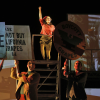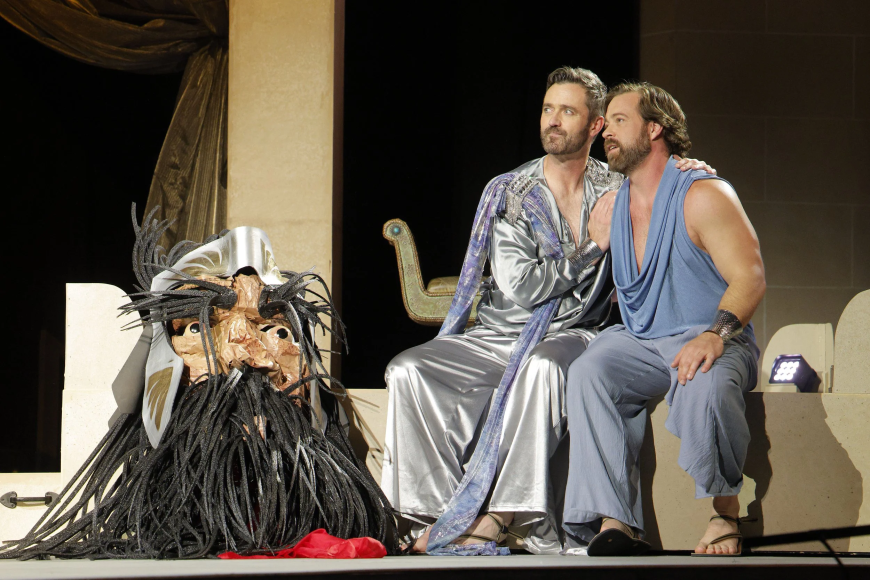
Two young people fall in love. The father, jealous of his son's new love, interferes. Tragedy ensues. It’s a standard opera plot, but it’s no La Traviata.
In West Edge Opera’s production of Marc-Antoine Charpentier's David and Jonathan, there's a twist: both lovers are men.
The Bay Area company’s take on the 1688 opera, which opened Sunday, Aug. 3, at the Oakland Scottish Rite Center, presents a homosexual relationship that is far from "the love that dare not speak its name" as part of its summer festival. Director Mark Streshinsky staged this biblical love story in open acknowledgement of the physical and emotional intensity between the title characters — David, the slayer of Goliath, and Jonathan, the son of King Saul of Israel.
This openly gay vision of Charpentier's Baroque opera makes a radical casting decision. In the original score, Jonathan's part was to be sung by a boy soprano. Most modern productions cast a female soprano as Jonathan. But West Edge's version stars Derek Chester as David and Aaron Sheehan as Jonathan, both buff young men.
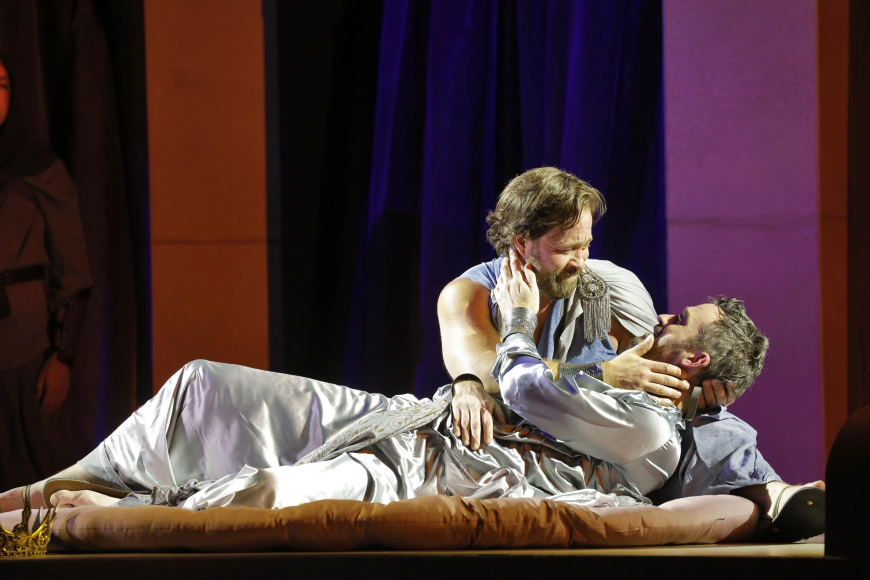
We might think of the time of Louis XIV as frozen in conventionality, but Charpentier's music is passionate and full of life. The two title characters share their love, their sorrow and finally their grief in moving duets. Their bond is made even more emotional by West Edge's reworking of both vocal lines into tenor range: the lovers share a single expressive language.
In Streshinsky’s staging, the lovers display their affection passionately. They kiss, make love and pledge their union openly. And yes, because it's a tragedy, Jonathan dies in David's arms.
Jealous Saul, powerfully presented by baritone Matthew Worth, forces the two lovers apart. As the biblical account makes clear, the king is deeply disturbed, prone to fits of anger and violence. His self-loathing turns against those he loves and eventually against himself.
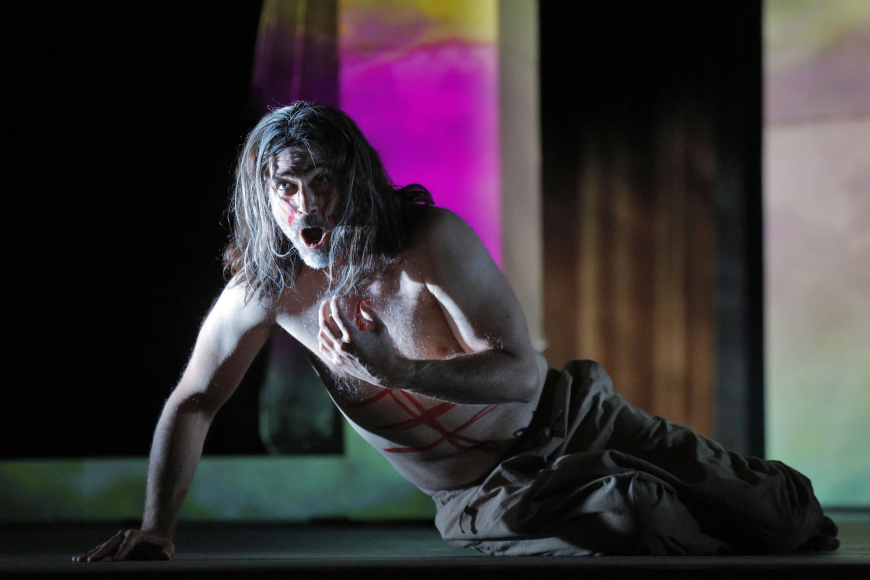
This fateful triangle of Saul, David and Jonathan plays out during the brutal, long-lasting war of Israel against the Philistines — the historical inhabitants of the anguished land we now call Gaza. The opera makes it achingly clear that such wars are fostered by obsessive and paranoid kings, and have disastrous consequences for all. At the end, when David succeeds Saul as king, the crown means nothing to him as he sobs, cradling his lover's lifeless body.
West Edge's production makes the stage come alive, with a constantly moving set and expressive changes of lighting. A quartet of excellent dancers, choreographed by Benjamin Freedman, splendidly physicalized Charpentier's lively ballets. The fine baroque orchestra of strings and flutes was led from the keyboards by Music Director Adam Pearl.
Pearl and Streshinsky clarified a number of confusing elements of the libretto, such as adding an opening number replaying David's heroic slaying of Goliath, comically reenacted in Saul's court with the giant as a monstrous puppet, ineffectively flailing his equally monstrous member.
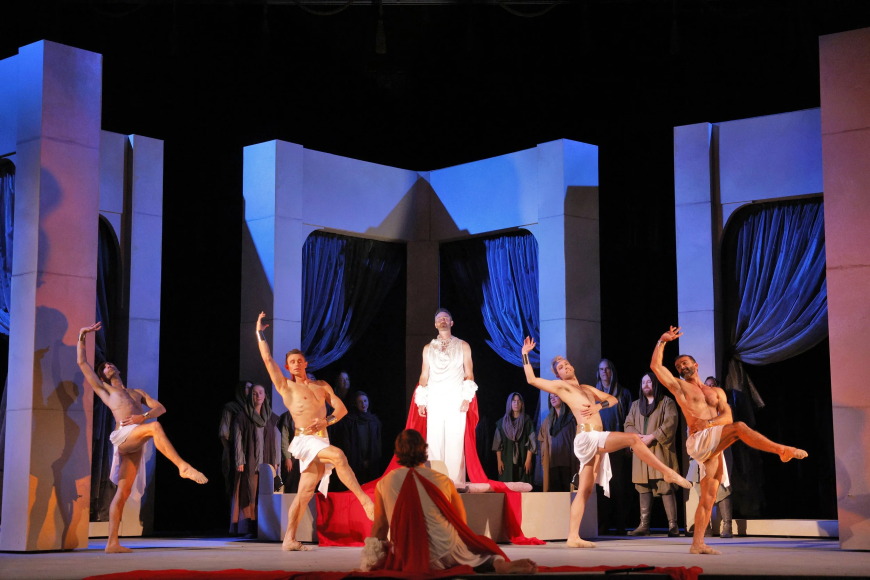
Supporting roles included Achis, King of the Philistines, sung with commanding presence by bass-baritone Wilford Kelly; Joabel, a treacherous Philistine, portrayed with swagger by Ben Pattison; Ghost of the prophet Samuel, a sonorous bass role, sung by Richard Mix; and the Witch of Endor, who pulls Samuel from the underworld, portrayed fabulously by mezzo-soprano Laurel Semerdjian in a bat-like costume.
West Edge Opera's summer festival continues through Aug. 17, with additional performances of David and Jonathan and two other operas, Dolores (through Aug. 16) and Wozzeck (opening Saturday, Aug. 9).


